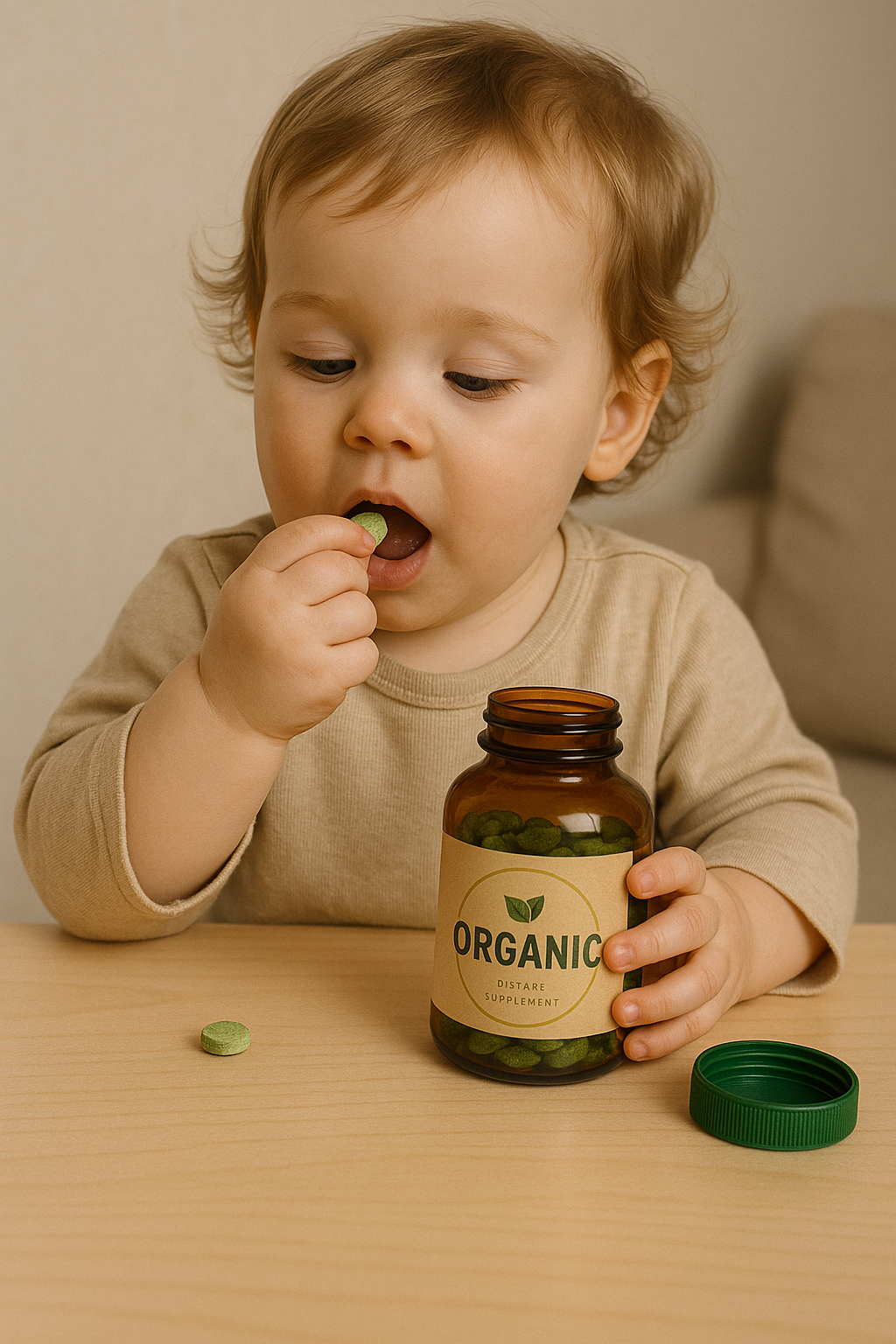
Organic Supplements and Children: Are They Really Better?
Share
As parents grow more health-conscious, organic supplements for children are gaining popularity. But are they truly better for growing kids—or just a marketing trend? Let’s explore the science behind organic health supplements and their real effects on child development.
👶 What Are Organic Supplements?
Organic supplements are made from ingredients grown without synthetic pesticides, fertilizers, or genetically modified organisms (GMOs). They often include plant-based vitamins, herbal extracts, and organically sourced minerals.
For example, a USDA-certified organic multivitamin might use acerola cherries for Vitamin C instead of ascorbic acid synthesized in a lab.
🧠 Scientific Evidence: Benefits for Children
A study published in Journal of Agricultural and Food Chemistry (Brandt et al., 2011) showed that organic fruits and vegetables tend to have higher antioxidant levels compared to conventionally grown produce. When these ingredients are used in supplements, the phytonutrient density can be higher, potentially offering more immune support and cellular protection.
Another study in Nutrients (2020) by Średnicka-Tober et al. reviewed 170 peer-reviewed papers and concluded that organic foods had significantly higher levels of certain antioxidants and lower levels of toxic metals and pesticide residues—factors especially important for children whose organs are still developing.
🌱 Potential Benefits for Children
-
Reduced chemical exposure: Lower pesticide levels may help reduce the risk of developmental disorders and allergies.
-
Gentler digestion: Natural binders and excipients used in organic supplements are often easier on a child's gut.
-
Better nutrient retention: Organically grown ingredients may contain more micronutrients due to soil quality and farming methods.
-
Immune support: Organic elderberry, echinacea, and zinc from food-based sources can support a child’s immune system naturally.
-
Long-term wellness habits: Introducing organic choices early can shape lifelong healthy eating patterns.
⚠️ Things to Consider
While organic supplements can be beneficial, they’re not always more effective than conventional ones. According to the American Academy of Pediatrics (AAP), the focus should remain on a balanced diet first. Supplements—organic or not—should only fill nutritional gaps, not replace whole foods.
Also, the "organic" label doesn't automatically guarantee higher effectiveness. It's vital to check third-party testing, dosage appropriateness, and ingredient transparency.
✅ Conclusion
Organic supplements offer several compelling benefits, especially when it comes to lowering toxic exposure and enhancing nutrient quality. However, they are part of a broader puzzle—what matters most is quality, safety, and how they complement a child's overall diet.
If used thoughtfully, organic supplements can be a natural ally in your child’s growth journey.
